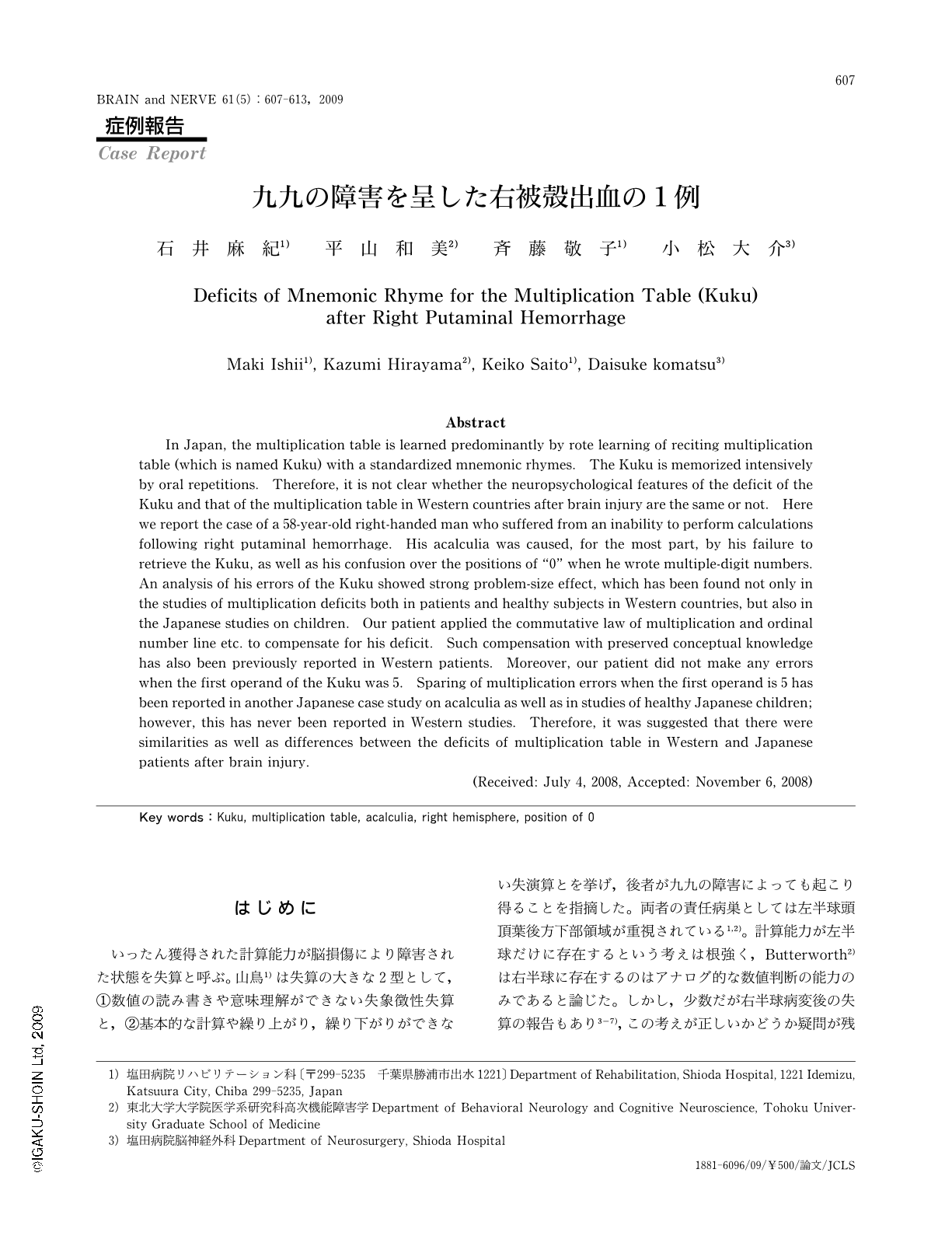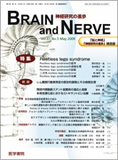Japanese
English
- 有料閲覧
- Abstract 文献概要
- 1ページ目 Look Inside
- 参考文献 Reference
はじめに
いったん獲得された計算能力が脳損傷により障害された状態を失算と呼ぶ。山鳥1)は失算の大きな2型として,①数値の読み書きや意味理解ができない失象徴性失算と,②基本的な計算や繰り上がり,繰り下がりができない失演算とを挙げ,後者が九九の障害によっても起こり得ることを指摘した。両者の責任病巣としては左半球頭頂葉後方下部領域が重視されている1,2)。計算能力が左半球だけに存在するという考えは根強く,Butterworth2)は右半球に存在するのはアナログ的な数値判断の能力のみであると論じた。しかし,少数だが右半球病変後の失算の報告もあり3-7),この考えが正しいかどうか疑問が残こる。欧米にも掛け算表(multiplication table)の障害の研究8,9)はある。しかし,節を付けた過剰学習に着目してKashiwagiら10)が「覚え歌(mnemonic rhyme)」と表現したわが国の九九においても,欧米の掛け算表と同様の障害が起こるかどうか検討の余地がある11)。今回われわれは,右半球の被殻出血後に0の扱いを主とした失象徴性失算と九九の障害を主とした失演算とを呈した1例を経験し,九九の障害を中心に検討を行ったので報告する。
Abstract
In Japan, the multiplication table is learned predominantly by rote learning of reciting multiplication table (which is named Kuku) with a standardized mnemonic rhymes. The Kuku is memorized intensively by oral repetitions. Therefore, it is not clear whether the neuropsychological features of the deficit of the Kuku and that of the multiplication table in Western countries after brain injury are the same or not. Here we report the case of a 58-year-old right-handed man who suffered from an inability to perform calculations following right putaminal hemorrhage. His acalculia was caused, for the most part, by his failure to retrieve the Kuku, as well as his confusion over the positions of "0" when he wrote multiple-digit numbers. An analysis of his errors of the Kuku showed strong problem-size effect, which has been found not only in the studies of multiplication deficits both in patients and healthy subjects in Western countries, but also in the Japanese studies on children. Our patient applied the commutative law of multiplication and ordinal number line etc. to compensate for his deficit. Such compensation with preserved conceptual knowledge has also been previously reported in Western patients. Moreover, our patient did not make any errors when the first operand of the Kuku was 5. Sparing of multiplication errors when the first operand is 5 has been reported in another Japanese case study on acalculia as well as in studies of healthy Japanese children; however, this has never been reported in Western studies. Therefore, it was suggested that there were similarities as well as differences between the deficits of multiplication table in Western and Japanese patients after brain injury.
(Received: July 4,2008,Accepted: November 6,2008)

Copyright © 2009, Igaku-Shoin Ltd. All rights reserved.


